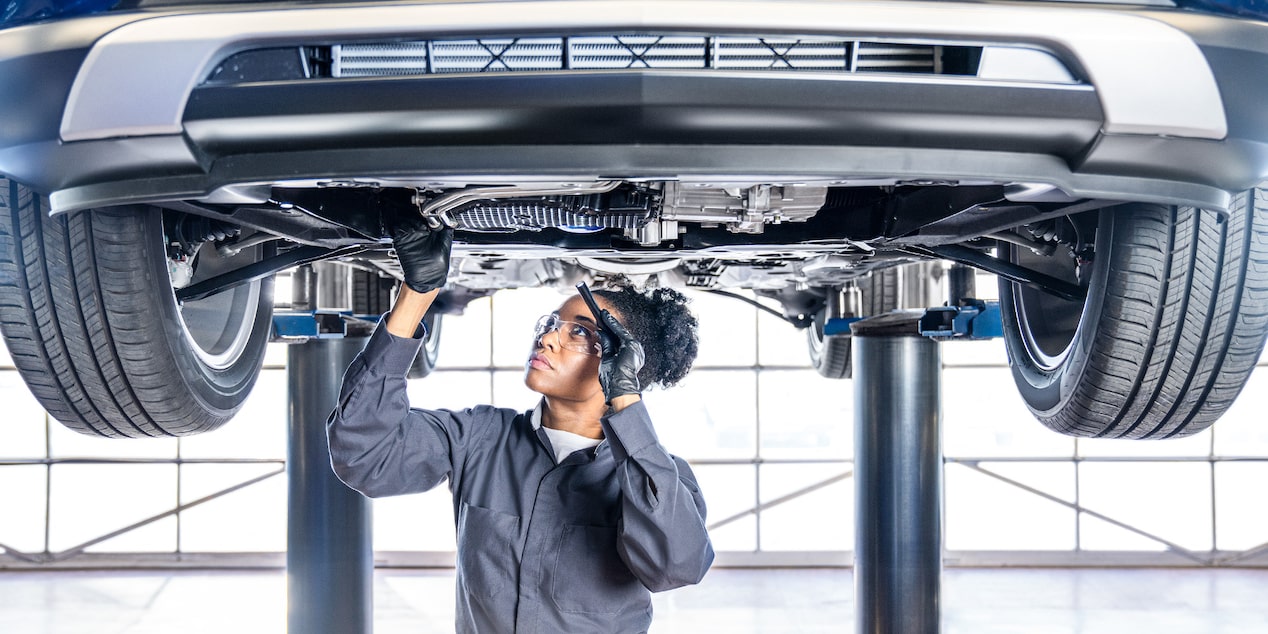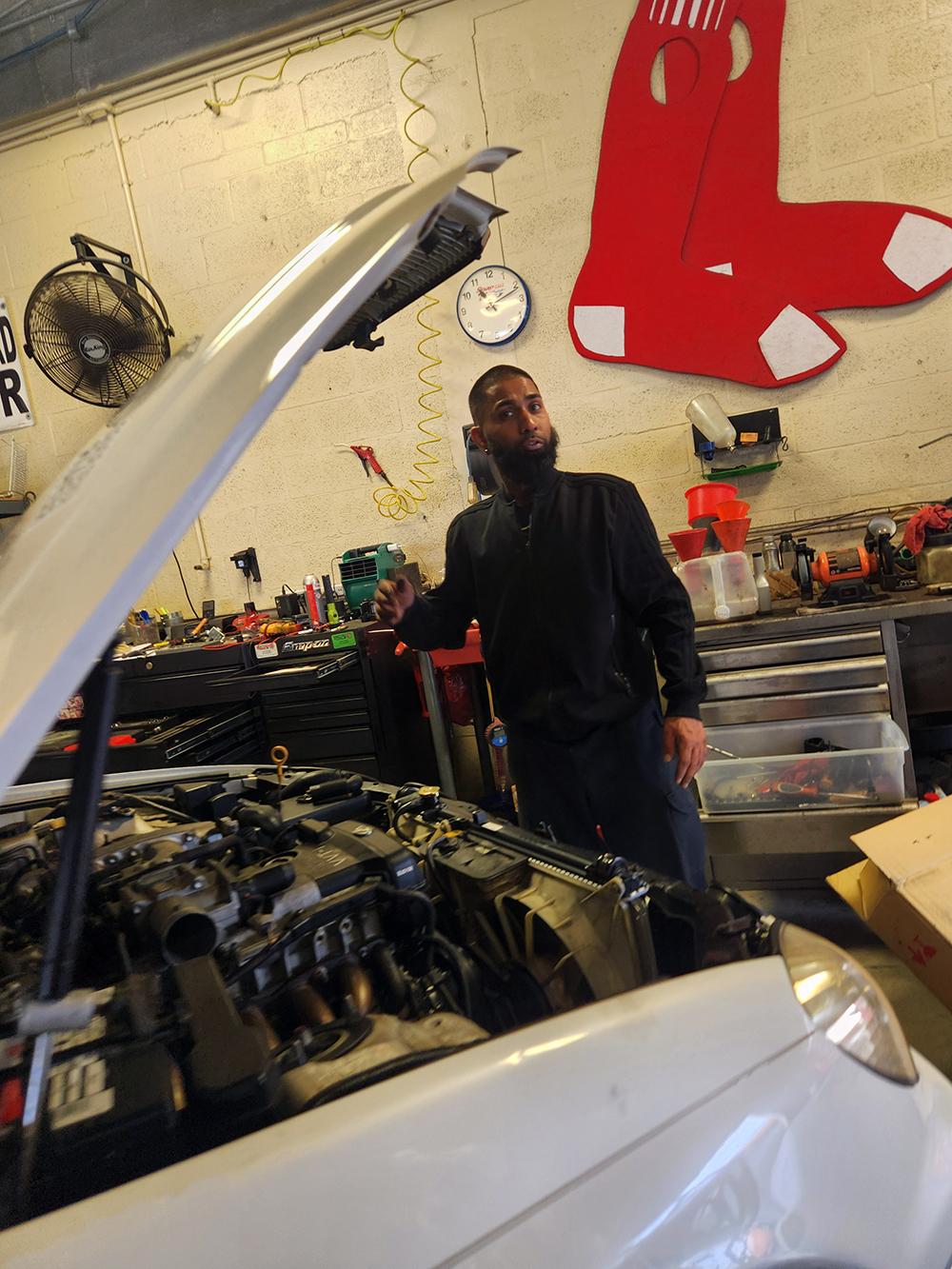All Categories
Featured
When your automobile gets too hot, it can feel like a major emergency, yet staying calm and following the ideal actions can prevent severe engine damage and aid get you back on the roadway securely. In this post, we'll explore what to do if your automobile overheats and use preventative tips to reduce the danger of overheating in the future.
If Your Cars and truck Gets too hot,What to Do. If your vehicle starts to overheat is to pull over to a risk-free place as quickly as feasible, pull Over to a Safe Area The initial and most important action. Turn on your danger lights and lead your vehicle to the shoulder or into a vehicle parking lot. Keeping your car running while it's overheated can cause extreme damage to the engine, so it's crucial to shut the engine off right away.
Allow the Engine Cool Once you've safely stopped, allow the engine to cool off. You need to never attempt to open the radiator cap while the engine is still hot, as the launch of steam or warm coolant can cause burns. Wait at the very least 15-20 minutes to permit the engine temperature to go down to a safer degree prior to proceeding.
![]()
Examine the Coolant Degree After the engine has actually cooled down, examine the coolant levels by evaluating the storage tank or radiator. If it's low, top it off with a mix of coolant and water (as defined by your vehicle's manufacturer) Constantly utilize caution when opening the coolant tank, as pressure may have built up.
Search For Noticeable Leaks While you wait on the engine to cool down, aesthetically check the radiator, pipes, and coolant tank for any type of noticeable leaks or cracks. A dripping radiator or tube is a common root cause of overheating. If you discover a substantial leakage, it's far better to call a tow service than danger driving better and triggering additional damages.
Reboot the Engine After allowing the engine to cool and making sure the coolant is covered off, begin the engine and keep track of the temperature level scale. If the temperature continues to climb swiftly, it's ideal to shut the engine off and ask for roadside help or a tow to the nearest mechanic.
![]()
Exactly How to Protect Against Overheating in the Future. Frequently Examine Coolant Levels One of the easiest means to stop getting too hot is by maintaining the right level of coolant. In time, coolant can vaporize, so routinely check the coolant degrees in the storage tank. Reduced coolant levels can cause the engine to get too hot promptly, so top it off as needed.
Check the Radiator The radiator plays an important role in maintaining the engine cool. Occasionally inspect the radiator for any kind of obstructions, dust, or particles that can obstruct air flow. If you see any type of indications of damages, such as corrosion or leakages, have it repaired or changed immediately.
Replace the Thermostat and Water Pump A malfunctioning thermostat or water pump is an usual root cause of overheating. The thermostat manages the flow of coolant, while the water pump distributes it through the engine. If either component is faulty, it can protect against appropriate cooling. Have your mechanic inspect these parts consistently and replace them when essential.
Flush the Cooling System With time, coolant can weaken and end up being inadequate, triggering an accumulation of debris in the system. Flushing the cooling system every 30,000 miles, or as advised in your vehicle's guidebook, assists to remove any sludge or accumulation and ensures the cooling system is working correctly.
Screen the Condition of the Hose pipes The hose pipes in your automobile's air conditioning system can wear or split in time. Inspect the hose pipes for any kind of signs of wear, such as protruding, cracks, or leakages, and replace them if needed. Protecting against coolant leakages can go a long method in staying clear of getting too hot.
![]()
Drive Responsibly Aggressive driving, such as increasing swiftly or driving at high speeds, places extra strain on your engine and its cooling system. Try to drive at moderate rates, particularly on warm days or when driving on steep inclines, to decrease the opportunities of overheating.
Stay Clear Of Straining Your Automobile Carrying excessive weight in your vehicle places stress and anxiety on the engine and cooling system. Always bear in mind your vehicle's weight limitation, particularly if you're carrying hefty lots, lugging a trailer, or driving fars away in hot weather condition.
Final thought. A getting too hot cars and truck can be a frightening experience, but understanding just how to react and prevent it can save you time, money, and possible engine damage. Constantly examine your coolant levels, check key elements like the radiator, thermostat, and hose pipes, and follow a normal maintenance schedule. By staying on top of your automobile's cooling system, you can decrease the threat of overheating and appreciate a smoother, safer driving experience.
If Your Cars and truck Gets too hot,What to Do. If your vehicle starts to overheat is to pull over to a risk-free place as quickly as feasible, pull Over to a Safe Area The initial and most important action. Turn on your danger lights and lead your vehicle to the shoulder or into a vehicle parking lot. Keeping your car running while it's overheated can cause extreme damage to the engine, so it's crucial to shut the engine off right away.
Allow the Engine Cool Once you've safely stopped, allow the engine to cool off. You need to never attempt to open the radiator cap while the engine is still hot, as the launch of steam or warm coolant can cause burns. Wait at the very least 15-20 minutes to permit the engine temperature to go down to a safer degree prior to proceeding.

Examine the Coolant Degree After the engine has actually cooled down, examine the coolant levels by evaluating the storage tank or radiator. If it's low, top it off with a mix of coolant and water (as defined by your vehicle's manufacturer) Constantly utilize caution when opening the coolant tank, as pressure may have built up.
Search For Noticeable Leaks While you wait on the engine to cool down, aesthetically check the radiator, pipes, and coolant tank for any type of noticeable leaks or cracks. A dripping radiator or tube is a common root cause of overheating. If you discover a substantial leakage, it's far better to call a tow service than danger driving better and triggering additional damages.
Reboot the Engine After allowing the engine to cool and making sure the coolant is covered off, begin the engine and keep track of the temperature level scale. If the temperature continues to climb swiftly, it's ideal to shut the engine off and ask for roadside help or a tow to the nearest mechanic.

Exactly How to Protect Against Overheating in the Future. Frequently Examine Coolant Levels One of the easiest means to stop getting too hot is by maintaining the right level of coolant. In time, coolant can vaporize, so routinely check the coolant degrees in the storage tank. Reduced coolant levels can cause the engine to get too hot promptly, so top it off as needed.
Check the Radiator The radiator plays an important role in maintaining the engine cool. Occasionally inspect the radiator for any kind of obstructions, dust, or particles that can obstruct air flow. If you see any type of indications of damages, such as corrosion or leakages, have it repaired or changed immediately.
Replace the Thermostat and Water Pump A malfunctioning thermostat or water pump is an usual root cause of overheating. The thermostat manages the flow of coolant, while the water pump distributes it through the engine. If either component is faulty, it can protect against appropriate cooling. Have your mechanic inspect these parts consistently and replace them when essential.
Flush the Cooling System With time, coolant can weaken and end up being inadequate, triggering an accumulation of debris in the system. Flushing the cooling system every 30,000 miles, or as advised in your vehicle's guidebook, assists to remove any sludge or accumulation and ensures the cooling system is working correctly.
Screen the Condition of the Hose pipes The hose pipes in your automobile's air conditioning system can wear or split in time. Inspect the hose pipes for any kind of signs of wear, such as protruding, cracks, or leakages, and replace them if needed. Protecting against coolant leakages can go a long method in staying clear of getting too hot.

Drive Responsibly Aggressive driving, such as increasing swiftly or driving at high speeds, places extra strain on your engine and its cooling system. Try to drive at moderate rates, particularly on warm days or when driving on steep inclines, to decrease the opportunities of overheating.
Stay Clear Of Straining Your Automobile Carrying excessive weight in your vehicle places stress and anxiety on the engine and cooling system. Always bear in mind your vehicle's weight limitation, particularly if you're carrying hefty lots, lugging a trailer, or driving fars away in hot weather condition.
Final thought. A getting too hot cars and truck can be a frightening experience, but understanding just how to react and prevent it can save you time, money, and possible engine damage. Constantly examine your coolant levels, check key elements like the radiator, thermostat, and hose pipes, and follow a normal maintenance schedule. By staying on top of your automobile's cooling system, you can decrease the threat of overheating and appreciate a smoother, safer driving experience.
Latest Posts
Understanding Commercial Roof Maintenance: A Guide to Prolonging Roof Lifespan
Published Jan 05, 25
1 min read
A-Abel Roofing: Your Tinley Park Roofing Specialists
Published Jan 05, 25
1 min read
Tips for Maintaining Your Automobile's A/c System Year-Round
Published Jan 05, 25
0 min read
More
Latest Posts
Understanding Commercial Roof Maintenance: A Guide to Prolonging Roof Lifespan
Published Jan 05, 25
1 min read
A-Abel Roofing: Your Tinley Park Roofing Specialists
Published Jan 05, 25
1 min read
Tips for Maintaining Your Automobile's A/c System Year-Round
Published Jan 05, 25
0 min read